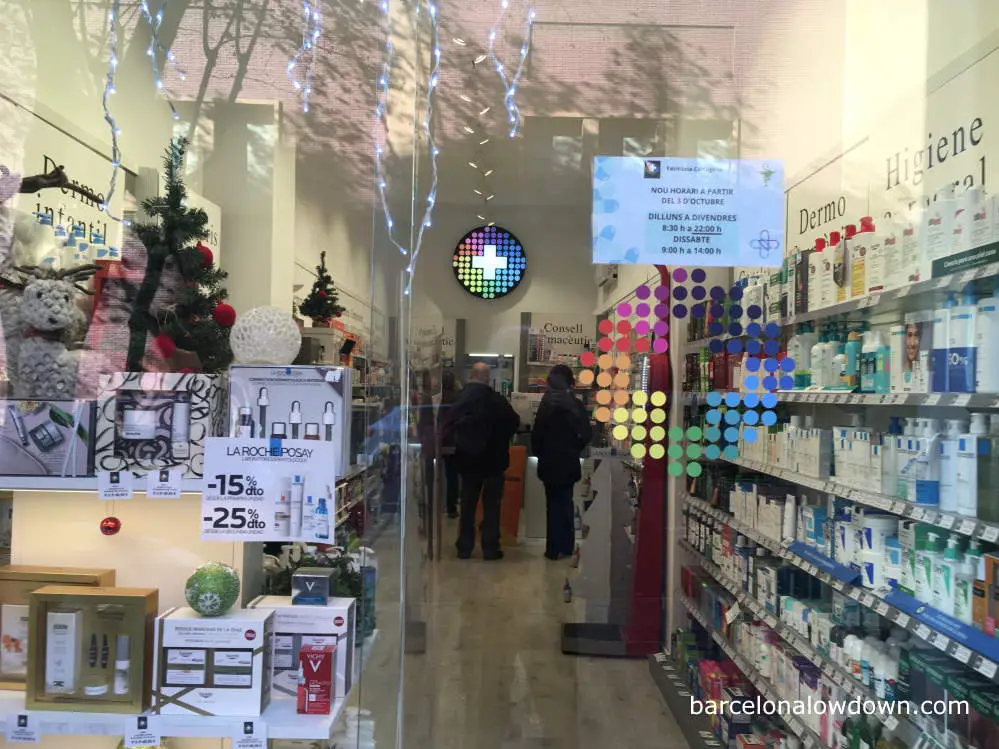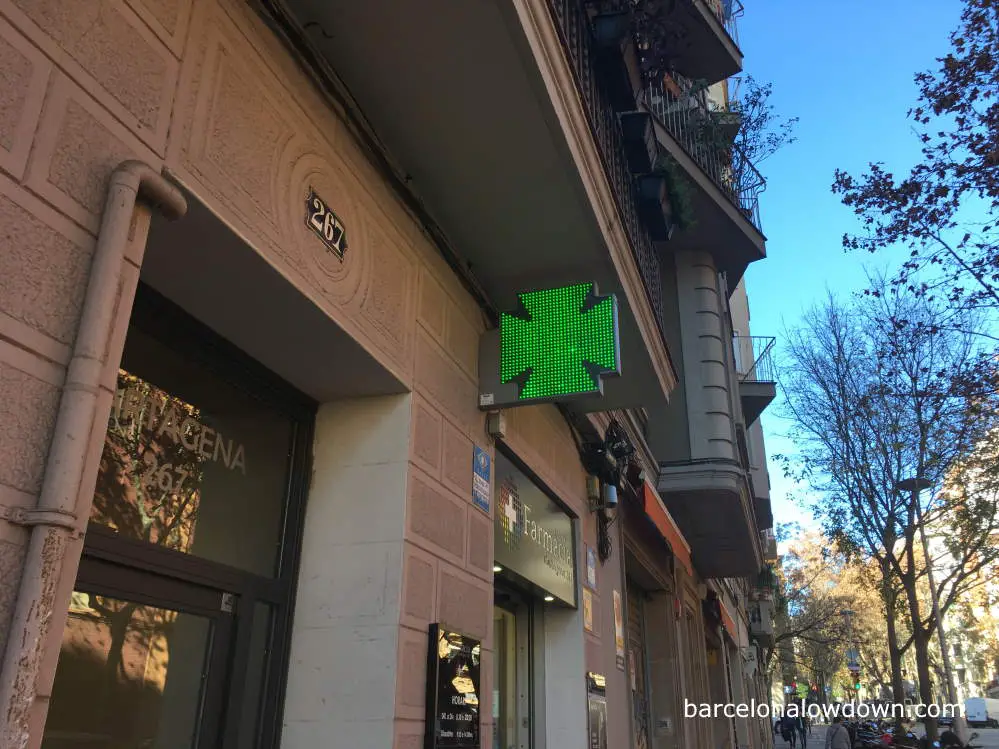When travelling abroad, whether on holiday or for work, you should always ensure that you have enough medication for the duration of your stay. For longer stays, your doctor may be able to write you an extended prescription.
On the other hand, sometimes plans go awry, causing you to run out. Maybe your bags got lost, or your flight home was delayed. Perhaps you miscalculated and ran out of your regular medicines during your holiday.
In this post, we look at what you should do if you run out of prescription medication when visiting Spain.

1. Ask at a pharmacy
The first place you should go if you run out of medication is the nearest pharmacy.
Pharmacies in Spain are primarily small, privately run businesses, and you will find at least one on every high street. Be on the lookout for illuminated green signs in the shape of a cross. Sometimes they are green and red.
Some medications which can only be purchased with a prescription in the UK or US can be purchased over the counter in Spain without a script.
Sometimes the brand name you usually take won’t be available in Spain, so it’s best to find out the medication’s generic name. If you have the empty packet or bottle, and ideally the leaflet which comes in the box, it’s a good idea to take that with you and show it to the pharmacist.
If you are visiting from another EU country and have your prescription with you, the pharmacist may be able to dispense prescription-only meds based on your foreign script.
If you are visiting from outside the EU, you should still bring a copy of your prescription. There’s a chance that the pharmacist will be able to accept your script as a private prescription, although you will, of course, have to pay full price for the drug.
If the pharmacy cannot dispense your medicine, or if you are taking a medication which is not available within the EU, the pharmacist will be able to tell you what you should do next. The chances are that they will direct you to the nearest health centre.
2. Call your travel insurance
At this stage, if you have health insurance, the next step is to call your insurer. They will be able to direct you to a clinic where a doctor will be able to prescribe your medication.
As mentioned above, if you have a prescription from your home country or an empty packet, it’s a good idea to take this with you.
When a medication is not available in the EU the doctor will prescribe the closest equivalent medication.
I am always amazed by the number of people who travel without suitable insurance. Although the EHIC card does cover medication and treatment in a Spanish hospital for EU nationals, it won’t cover repatriation costs or the costs incurred if you have to extend your stay. In the case of non-EU residents, although you will be treated in a Spanish hospital, you will be expected to cover the bill, and the costs can soon add up.
I personally use HeyMondo, who offer comprehensive travel insurance at a competitive price. I’ve been using them for a couple of years and am very happy with the service I’ve received.

3. Get a walk-in appointment at a health centre
If a pharmacy cannot sell your medication without a script, the next step is visiting the nearest doctor’s surgery or health centre.
Health centres in Spain are called Centros de Atención Primaria (English: Primary Care Centres) and are generally referred to as CAPs.
Depending on size, they are usually staffed by several doctors, nurses, and other specialities such as podologists and paediatricians.
Usually, a doctor’s appointment needs to be booked several days in advance. However, Some CAPs also offer emergency cover and, depending on circumstances, may offer walk-in appointments, although you may have to wait several hours.
As mentioned above, if you have a prescription from your home country or an empty packet, it’s a good idea to take this with you.
If you are visiting Spain from another EU country, the doctor’s fees will be covered by your EHIC card, although you may have to pay upfront and then claim the expenses back. If you are visiting from outside the EU, you will be required to pay for the consultation; or you may be referred to a private clinic.
Note: the EHIC card only covers treatment in public health centres and hospitals. You won’t be covered if you have made an appointment at a private clinic or hospital.
The easiest way to find the nearest public health centre is to copy “CAP mas cercano” into Google. In most cases, this will yield a map showing the nearest health centres and links to the local government website.
4. Call 061 (Emergency Services)
Not taking their medication for a day or two may not be a big deal for some people. For others, a missed dose may have very serious consequences.
In most cases, calling the emergency services shouldn’t be necessary, and I would discourage you from doing so. However, if you cannot find a pharmacy, health centre or hospital and urgently need to take your medication, you can call 061.
Before calling 061, you should be aware that in most areas of Spain, 061 redirects to 112, which is the Emergency Services phone number, so you should only call this number if it is an emergency. For example, when missing your medication would put your health at risk.
In Catalonia, which includes Barcelona, when you call 061, you are connected to a service called Salut Respon, which is staffed by health professionals who are fluent in multiple languages and will be able to assess your situation and direct you to the corresponding health centre. Once again, you should only call this number for urgent cases.
Conclusions
When travelling overseas, you should always take out travel insurance. This is especially important if you have a pre-existing condition, in which case you should check the small print to ensure that you are covered.
In addition to packing enough medication for the duration of your trip, plus a few extra days in case your flight home is cancelled or delayed, you should also bring a copy of your prescription.
If you are visiting Spain from another EU country, a Spanish pharmacy will probably be able to fill out your foreign prescription. If you are from outside the EU, you may need to be examined by a doctor, who will then write a prescription.
Some medications that are prescription-only in your home country may be available over the counter in Spanish pharmacies without a script. On the other hand, some medicines may not be approved for sale within the EU or may be available under another name.




